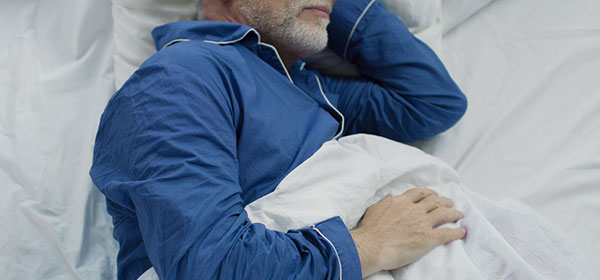Who knew there was a gene for sleeping? Who knew that the 2017 Nobel Prize in Physiology or Medicine went to academics Jeffrey Hall, Michael Rosbash and Michael Young for the discovery of that gene?
Well you must spend too much time reading and not enough sleeping.
The really important development will be when scientists can modify the DNA in newborns to ensure that gene is well and truly present at birth so they will sleep as babies should – immediately.
We raise this issue because it’s World Sleep Day. There seem to be countless world ‘something’ days, but sleep affects us all on a daily basis so it is worth marking. And a lack of sleep is definitely no laughing matter.
The experts say that healthy adults need seven to nine hours of sleep every night – but 40 per cent fail to achieve it.
A report released late last year estimates that sleep-related issues cost Australia $66 million annually – a $26.2 billion in financial costs and $40.1 billion in loss of wellbeing.
The report, conducted by Deloitte Access Economics on behalf of the Sleep Health Foundation, estimates that 39.8 per cent of Australian adults experience some form of inadequate sleep.
It says that sleep deprivation was linked to 3017 deaths in 2016-17 – 394 as a result of drivers falling asleep at the wheel or from industrial accidents due to lack of sleep. The remaining deaths were due to heart disease and diabetes linked to sleep disorders.
Our sleep patterns are controlled by circadian rhythms – the 24-hour cycles which are generated automatically by a clock in the brain and which are synchronised – when they’re stable – to day and night. Stuff up your circadian rhythm and there will be consequences.
“If we continually disrupt our rhythms, for example through shift work or burning the midnight oil, then we increase the risk of sleep disorders, mental health disorders and chronic health issues such as obesity, diabetes and even some cancers,” say researchers.
Light is vital in maintaining the biological clock.
When the eye senses light, it sends signals to the suprachiasmatic nucleus (SCN) in the brain. This resets the clock every day. Researchers explain that our rhythms cycle about every 24.1 hours but daylight keeps us in synch.
The influence of light also explains why we are able to adjust to new time zones when we travel, although we are likely to suffer jetlag for several days.
Sleep, a balanced diet and regular exercise are recognised as the three pillars of good health. Here’s what you can do to maintain or develop good sleep habits:
- wind down for an hour before going to bed
- don’t go to bed on a full stomach – or an empty one
- if you’re not asleep after 20 minutes, go to another room until you feel tired and then try again
- don’t have things in the bedroom that distract you from sleep
- avoid blue light emitted from electronic screens
- get a little sunlight during the day to help you sleep better at night
- a nap in the afternoon can make it hard to sleep at night.
Are you a good sleeper? What’s your secret?
Related articles:
Sleep issues and heart attacks
Tracking sleep apnoea
Can sleep prevent Alzheimer’s?

